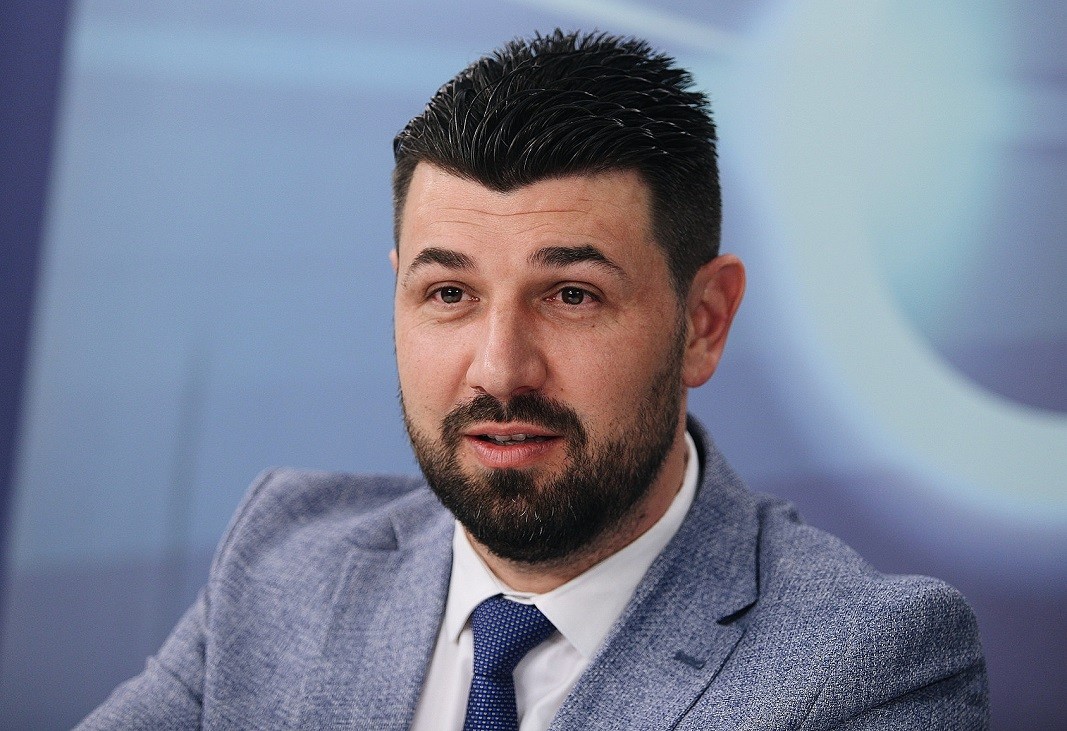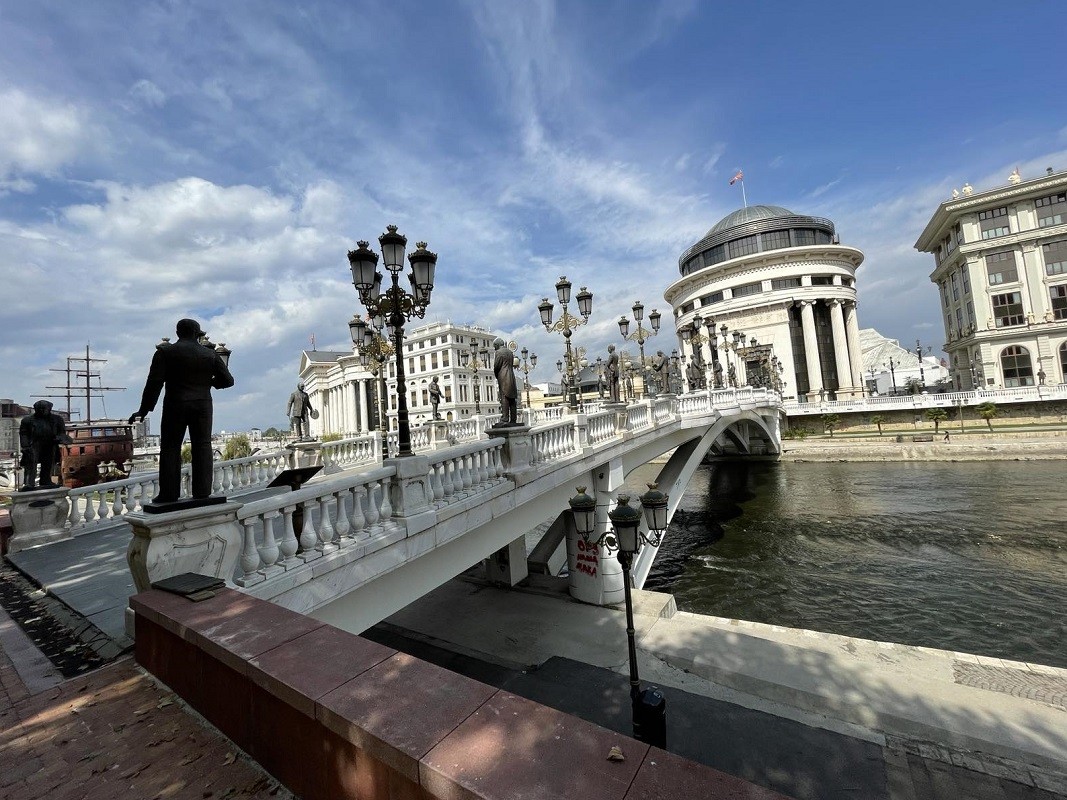In the backdrop of North Macedonia's aspiration to join the European family quickly, events are taking place in the country that are in opposition to established values such as human rights, tolerance and respect for the right to self-determination.
Vandalism against the newly-opened Bulgarian culture club "Tsar Boris III" in Ohrid has once again brought the focus of attention to the issue of hate speech against people with Bulgarian self-awareness there.

This has been the second attack against a Bulgarian cultural center in North Macedonia for less than 4 months. After an arson in the Bulgarian center in Bitola in the summer, the attacker was detained and later released with a suspended sentence. Now another North Macedonian citizen broke the windows and the sign of the office of the Bulgarian cultural center in Ohrid.
"There is enough evidence, even the name of the person is mentioned, but there is no information that he has been arrested. We hope that the police will do their job," Petar Kolev, lawyer, journalist and chairman of the Civic Democratic Union in North Macedonia, told BNR. According to him, it is precisely the reaction of the authorities in the Republic of North Macedonia to such acts of vandalism that is indicative of the attitude towards Bulgarians there. "North Macedonian institutions do not apply the law when it comes to attacks against Bulgarians and Bulgarian organizations, which shows a strategy that has been implemented for more than 75 years, related to the goal of not having a single Bulgarian organization or a single Bulgarian in North Macedonia," Petar Kolev says.
"If one is objective about the way this event has been reported in the North Macedonian media, they will see that most of the headlines are the same and the published texts seem to have been written on the same computer. This largely suggests that what is happening is not an accident, but coordinated events with one clear goal that has not changed for years. It is necessary to make this clear both to the Bulgarian authorities and society, and to the European institutions. Because the Bulgarian organizations in North Macedonia have been trying to solve this problem in an institutional way for more than 30 years and we realized that we cannot deal with this machine, containing the poison of anti-Bulgarianism. That is exactly why we turned to the institutions in Bulgaria for support, but also to the European institutions and tried to make the issue of human rights and the treatment of Bulgarians in Macedonia part of the negotiation process for the Republic of North Macedonia."
The language of hatred against Bulgarians in North Macedonia has been intensifying instead of vanishing, despite the agreement between Bulgaria and North Macedonia and in the backdrop of the surveillance that Brussels is carrying out towards the Balkan country in view of its desire to join the EU soon.
"This is not my personal opinion,” Petar Kolev says. “The report of the European Commission on North Macedonia was released yesterday and it states that the country should implement the good-neighbor agreement with Bulgaria; it should change the constitution, the parliament should take legislative initiatives in relation to hate speech. The EC reports a rise in the language of hate and human rights violations in the Republic of North Macedonia, especially when it comes to the Bulgarians living there. It is the European Commission that provides detailed information about the cases we are talking about today."

For just a year there have been over 100 reports sent to European institutions by people of Bulgarian origin in North Macedonia, related to "a variety of events and incidents from their lives - physical attacks, discrimination at the workplace or in educational institutions, attempts at wrongful actions towards their business ventures, wrongful actions of the administration.”
Yesterday, during the incident in Ohrid, representatives of OSCE were present in the office of the Bulgarian Cultural Association, which gives Petar Kolev reason to believe that this incident will also be described in a report by this organization, like dozens of other cases registered during the past three years. "Absolutely everyone sees what is happening. I am sure that not only the European institutions, but also the embassies of the Western partners - the members of NATO and the EU, notice what is happening, because we have held dozens of meetings and we have sent signals about everything."
Interview by: Diana Doncheva
Text: Elena Karkalanova
English translation: Al. Markov
Photos: BGNES
Albania and Bulgaria have joined forces in the name of one more child being born. In the late afternoon of November 7, the first-ever free reproductive medicine checkups, led by Bulgarian specialists, began in the Albanian town of Korçë — a region..
A Bulgarian-designed electric vessel has gained international recognition , reaching the final round of the prestigious Gussies Electric Boat Awards 2025 . The awards celebrate the world’s most innovative and sustainable electric boats and yachts,..
A case of a dog run over by a doctor in a district of Sofia has caused a wave of public indignation and a protest in Sofia, which will take place today in front of the Military Medical Academy - the medical institution where the medic..
Timișoara, a large multicultural city in western Romania, is the center of the historical community of the Banat Bulgarians . The members of this..
The project “The Charisma of Bulgarians” is, in essence, a bridge between different worlds . With it, Dimitrinka Yordanova Komanduci - psychologist,..

+359 2 9336 661
